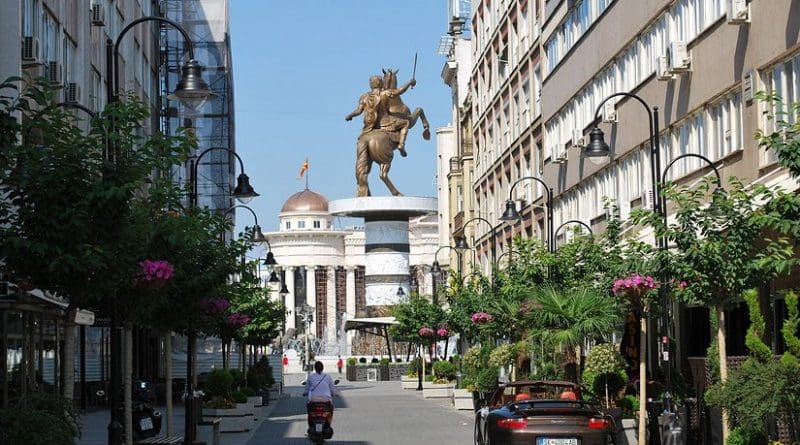Macedonia To Rename Divisive Statues That Irked Greece
By Sinisa Jakov Marusic
Huge statues erected in recent years in the Macedonian capital of the ancient warrior kings Alexander the Great and Filip of Macedon – as well as that of Alexander’s mother, Olympia – will be officially renamed and marked in honour of Greek-Macedonian friendship, the Macedonian government has announced.
“The monuments will get plates with explanations. For example, ‘Equestrian Warrior’ will be called ‘Alexander the Great’ – with an explanation that he symbolises the Ancient Hellenic period and remains a symbol of friendship between Macedonia and Greece. The same will apply to the statues of Filip and Olympia,” government spokesperson Mile Bosnjakovski said.
“These monuments will be marked for the purpose of strengthening our friendship. We are not afraid to call the monuments as they are,” Bosnjakovski added.
The giant statues in the centre of the city form the centrepiece of the controversial Skopje 2014 project – a government-sponsored revamp of the capital.
They were erected in 2011 and 2012 by the then nationalist government of former Prime Minister Nikola Gruevski.
However, the statues were officially never named after the ancient figures they represented, in a futile attempt not to anger Athens, which still called them acts of cultural theft.
For example, the Alexander the Great statue was merely called “Equestrian Warrior” and his father Filip’s statue was simply named “Ancient Warrior”.
Their erection still annoyed Athens, which saw the move as a provocation and an attempt to appropriate what it considers exclusively Hellenic figures.
At the heart of the problem was not the statues but the long-standing dispute between the two countries over the name “Macedonia”.
After Greece blocked Macedonia’s NATO accession in 2008 over the unresolved dispute, and did the same next year with the start of EU accession talks, the government in Skopje turned towards more hard-line words and gestures, among other things erecting more statues that it indirectly linked to Macedonian heritage.
The move to rename the statues comes just days after the Macedonian government led by Zoran Zaev reached a historic deal with Greece aimed at ending the “name” dispute, which now has to be implemented.
Under the agreement, Macedonia is to change its name to “Republic of North Macedonia” in exchange for swift accession to NATO and the start of EU accession talks.

